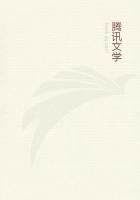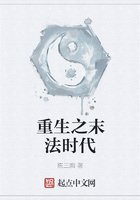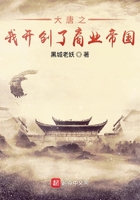For at the marriage of Peleus and Thetis, the gods gathered together on Pelion to feast and brought Peleus gifts. Cheiron gave him a stout ashen shaft which he had cut for a spear, and Athena, it is said, polished it, and Hephaestus fitted it with a head. The story is given by the author of the "Cypria".
Fragment #6 --
Athenaeus, xv. 682 D, F:
The author of the "Cypria", whether Hegesias or Stasinus, mentions flowers used for garlands. The poet, whoever he was, writes as follows in his first book:
(ll. 1-7) `She clothed herself with garments which the Graces and Hours had made for her and dyed in flowers of spring -- such flowers as the Seasons wear -- in crocus and hyacinth and flourishing violet and the rose's lovely bloom, so sweet and delicious, and heavenly buds, the flowers of the narcissus and lily. In such perfumed garments is Aphrodite clothed at all seasons.
((LACUNA))
(ll. 8-12) Then laughter-loving Aphrodite and her handmaidens wove sweet-smelling crowns of flowers of the earth and put them upon their heads -- the bright-coiffed goddesses, the Nymphs and Graces, and golden Aphrodite too, while they sang sweetly on the mount of many-fountained Ida.'
Fragment #7 --
Clement of Alexandria, Protrept ii. 30. 5:
`Castor was mortal, and the fate of death was destined for him;but Polydeuces, scion of Ares, was immortal.'
Fragment #8 --
Athenaeus, viii. 334 B:
`And after them she bare a third child, Helen, a marvel to men.
Rich-tressed Nemesis once gave her birth when she had been joined in love with Zeus the king of the gods by harsh violence. For Nemesis tried to escape him and liked not to lie in love with her father Zeus the Son of Cronos; for shame and indignation vexed her heart: therefore she fled him over the land and fruitless dark water. But Zeus ever pursued and longed in his heart to catch her. Now she took the form of a fish and sped over the waves of the loud-roaring sea, and now over Ocean's stream and the furthest bounds of Earth, and now she sped over the furrowed land, always turning into such dread creatures as the dry land nurtures, that she might escape him.'
Fragment #9 --
Scholiast on Euripides, Andr. 898:
The writer (3) of the Cyprian histories says that (Helen's third child was) Pleisthenes and that she took him with her to Cyprus, and that the child she bore Alexandrus was Aganus.
Fragment #10 --
Herodotus, ii. 117:
For it is said in the "Cypria" that Alexandrus came with Helen to Ilium from Sparta in three days, enjoying a favourable wind and calm sea.
Fragment #11 --
Scholiast on Homer, Il. iii. 242:
For Helen had been previously carried off by Theseus, and it was in consequence of this earlier **** that Aphidna, a town in Attica, was sacked and Castor was wounded in the right thigh by Aphidnus who was king at that time. Then the Dioscuri, failing to find Theseus, sacked Athens. The story is in the Cyclic writers.
Plutarch, Thes. 32:
Hereas relates that Alycus was killed by Theseus himself near Aphidna, and quotes the following verses in evidence: `In spacious Aphidna Theseus slew him in battle long ago for rich-haired Helen's sake.' (4)Fragment #12 --
Scholiast on Pindar, Nem. x. 114:
(ll. 1-6) `Straightway Lynceus, trusting in his swift feet, made for Taygetus. He climbed its highest peak and looked throughout the whole isle of Pelops, son of Tantalus; and soon the glorious hero with his dread eyes saw horse-taming Castor and athlete Polydeuces both hidden within a hollow oak.'
Philodemus, On Piety:
(Stasinus?) writes that Castor was killed with a spear shot by Idas the son of Aphareus.
Fragment #13 --
Athenaeus, 35 C:
`Menelaus, know that the gods made wine the best thing for mortal man to scatter cares.'
Fragment #14 --
Laurentian Scholiast on Sophocles, Elect. 157:
Either he follows Homer who spoke of the three daughters of Agamemnon, or -- like the writer of the "Cypria" -- he makes them four, (distinguishing) Iphigeneia and Iphianassa.
Fragment #15 -- (5)
Contest of Homer and Hesiod:
`So they feasted all day long, taking nothing from their own houses; for Agamemnon, king of men, provided for them.'
Fragment #16 --
Louvre Papyrus:
`I never thought to enrage so terribly the stout heart of Achilles, for very well I loved him.'
Fragment #17 --
Pausanias, iv. 2. 7:
The poet of the "Cypria" says that the wife of Protesilaus --who, when the Hellenes reached the Trojan shore, first dared to land -- was called Polydora, and was the daughter of Meleager, the son of Oeneus.
Fragment #18 --
Eustathius, 119. 4:
Some relate that Chryseis was taken from Hypoplacian (6) Thebes, and that she had not taken refuge there nor gone there to sacrifice to Artemis, as the author of the "Cypria" states, but was simply a fellow townswoman of Andromache.
Fragment #19 --
Pausanias, x. 31. 2:
I know, because I have read it in the epic "Cypria", that Palamedes was drowned when he had gone out fishing, and that it was Diomedes and Odysseus who caused his death.
Fragment #20 --
Plato, Euthyphron, 12 A:
`That it is Zeus who has done this, and brought all these things to pass, you do not like to say; for where fear is, there too is shame.'
Fragment #21 --
Herodian, On Peculiar Diction:
`By him she conceived and bare the Gorgons, fearful monsters who lived in Sarpedon, a rocky island in deep-eddying Oceanus.'
Fragment #22 --
Clement of Alexandria, Stromateis vii. 2. 19:
Again, Stasinus says: `He is a ****** man who kills the father and lets the children live.'
ENDNOTES:
(1) The preceding part of the Epic Cycle (?).
(2) While the Greeks were sacrificing at Aulis, a serpent appeared and devoured eight young birds from their nest and lastly the mother of the brood. This was interpreted by Calchas to mean that the war would swallow up nine full years. Cp. "Iliad" ii, 299 ff.
(3) i.e. Stasinus (or Hegesias: cp. fr. 6): the phrase `Cyprian histories' is equivalent to "The Cypria".
(4) Cp. Allen "C.R." xxvii. 190.
(5) These two lines possibly belong to the account of the feast given by Agamemnon at Lemnos.
(6) sc. the Asiatic Thebes at the foot of Mt. Placius.

